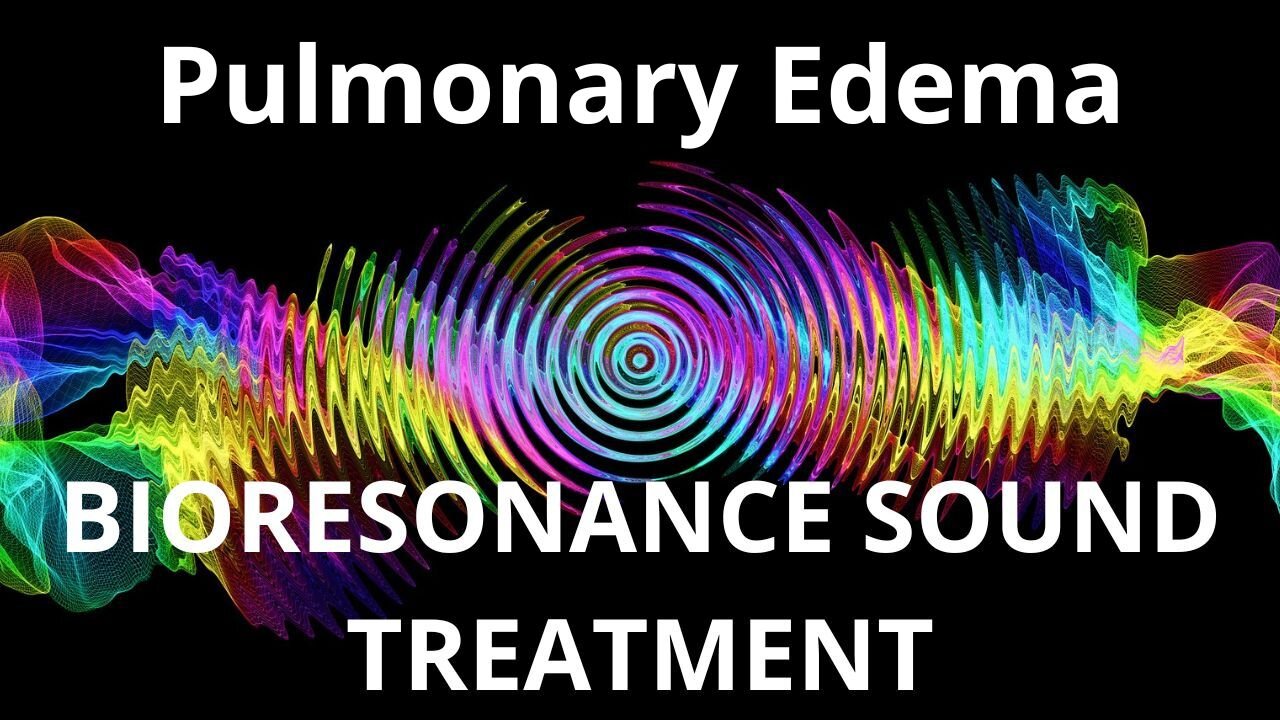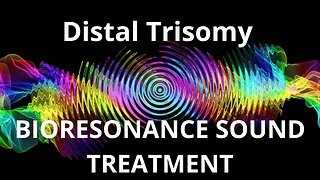Premium Only Content

Pulmonary Edema_Sound therapy session_Sounds of nature
#ResonantFrequencySoundTherapy #PulmonaryEdema #AdjunctiveTreatment #ComplementaryTherapy #IntegrativeMedicine #HolisticWellness #RespiratoryHealth #SoundHealing #VibrationalMedicine #PulmonaryFunction
Pulmonary edema, a condition characterized by the accumulation of fluid in the lungs, can be a life-threatening medical emergency. While conventional medicine plays a crucial role in managing this condition, there is growing interest in complementary and adjunctive therapies to enhance treatment outcomes. One such promising approach is resonant frequency sound therapy, which offers unique benefits in combination with traditional medical interventions.
Resonant frequency sound therapy involves the use of specific sound frequencies to resonate with the body's natural frequencies, promoting a state of harmony and balance. When applied as an adjunctive treatment for pulmonary edema, this therapy offers several potential benefits that complement conventional medical care.
First and foremost, resonant frequency sound therapy has been shown to induce relaxation and reduce stress, which can have a positive impact on the overall well-being of individuals with pulmonary edema. Stress reduction is particularly important in managing pulmonary edema, as stress and anxiety can exacerbate symptoms and contribute to the progression of the condition. By promoting relaxation, sound therapy may help alleviate the psychological burden often associated with pulmonary edema, thereby enhancing the patient's quality of life.
Furthermore, resonant frequency sound therapy has the potential to improve respiratory function and oxygenation. The targeted application of specific sound frequencies can stimulate cellular activity and promote circulation, potentially aiding in the clearance of excess fluid from the lungs and supporting respiratory efficiency. This complementary effect on pulmonary function aligns with the goals of conventional treatment for pulmonary edema, offering a holistic approach to addressing the underlying physiological imbalances.
In addition to its direct physiological effects, resonant frequency sound therapy may also contribute to the management of associated symptoms such as shortness of breath and chest discomfort. By promoting relaxation and reducing tension in the chest muscles, sound therapy can offer symptomatic relief and improve the overall comfort of individuals coping with pulmonary edema.
It is important to emphasize that resonant frequency sound therapy should be integrated into the overall treatment plan for pulmonary edema in collaboration with healthcare professionals. This approach, known as integrative medicine, recognizes the value of combining conventional medical interventions with evidence-based complementary therapies to optimize patient outcomes.
In conclusion, the benefits of using resonant frequency sound therapy as an adjunctive treatment for pulmonary edema are multifaceted. By promoting relaxation, supporting respiratory function, and addressing associated symptoms, this complementary approach holds promise in enhancing the overall management of pulmonary edema when integrated with conventional medical care.
In my store you can purchase unique medicines:
https://store11998180.company.site/
You have the opportunity to support the channel:
https://destream.net/live/RadSiarAl/donate
-
 29:59
29:59
BIORESONANCE SOUND THERAPY
7 days agoDistal Trisomy _ Sound therapy session _ Sounds of nature
81 -
 LIVE
LIVE
Turning Point USA
4 hours agoSAS is LIVE! Alex Clark, Charlie Kirk, Savannah and Todd Chrisley, Dave Smith & more.. in Tampa, FL!
15,440 watching -
 LIVE
LIVE
RalliedLIVE
1 hour ago $0.50 earnedHIGH OCTANE WARZONE w/ RAL
384 watching -
 LIVE
LIVE
Tundra Tactical
41 minutes agoTundra Goes META: MEME Review 2
317 watching -
 20:04
20:04
World2Briggs
12 hours ago $4.44 earnedTop 10 States That Are Getting Worse Every Year
14.1K20 -
 17:28
17:28
Machete Gaming
4 days ago $3.71 earnedFIFA 22: BROKEN in Places, BRILLIANT in Others (Modded in 2025)
17.1K -
 13:55
13:55
DanielShenSmith
4 hours ago $1.29 earnedNOT for Working People!
12.2K7 -
 9:36
9:36
nospeedlimitgermany
22 hours ago $0.97 earnedAudi A4 Avant B5 1.9 TDI 110 PS Top Speed Drive On German Autobahn No Speed Limit POV
14.2K5 -
 44:37
44:37
Degenerate Plays
3 hours ago $0.37 earnedHow I'd Bring Back The DCAU - Batman: Arkham Asylum : Part 8
11.6K -
 25:01
25:01
The Bryce Eddy Show
6 days ago $1.11 earnedNick Vujicic: The Bank Canceled Me for My Faith
17.4K4